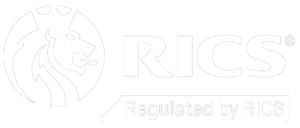Inevitably, mistakes happen. They happen a lot.
Assessing and commenting on mistakes is fairly common practice in the negotiation of variations. However there is one situation which poses quite a dilemma for a number of Quantity Surveyors. This is when a mistake actually undervalues the variation.
For those of us with principals, there is actually a genuine ethical dilemma at play here:
- By correcting this, am I working against the interests of my Client? I could pay more than what would have been possible had I kept quiet.
- As a professional, it is my obligation to correctly assess a variation. By ignoring this, am I advocating what is clearly wrong? Am I acting without integrity and / or in a way that damages the perception of the profession?
I’ve always found this kind of situation quite interesting. I first encountered this situation early on in my career. This involved the management of a logistics sub-contract package. There were huge sports pitches that needed to be destoned by hand. As the amount of work was difficult to determine, the works would be undertaken on dayworks.
I was checking the clock in and out times to verify the accuracy of the labour hours claimed. Normally this resulted in reducing the hours claimed. But in one instance I noticed the labourers clocked out at near 12:00am. Rough day indeed! The claimed value was for normal working hours only. I decided to value it correctly and left it with a note to the Quantity Surveyor saying “Let’s discuss.”
During a meeting where we were agreeing variations, we got to this item and he said to me:
“Charlie, please don’t tell my boss about this, I could get in trouble for something like this.” We both laughed. I think it was said as a joke, but then again maybe not…
Of course it went without saying, I was never going to tell his boss. At the time, I didn’t think twice about correcting the error. I thought the Quantity Surveyor’s role was to ensure everything was valued correctly. More of a robotic action at the time rather than a carefully considered decision.
However that action set the tone for the relationship going forward. In the future, his variation claims were far more carefully assessed. I no longer had to ask for substantiation, he just gave it to me unprompted. When we had discussions they were easily and quickly resolved. Everything became easier.
Now I’m not saying you should point out all errors no matter the cost. We still need to ensure we are working in our Client’s best interests. I just want you to understand that sometimes a short term financial sacrifice can equate to far more in the long run. It may be worth making small corrections unprompted if you believe it will build trust. Trust is one of the most powerful negotiating tools.
When making your decision, consider the following:
- What stage in the relationship are you? If it’s early on, a small act of compassion can result in great commercial savings. If it’s late on and the relationship has never been good, it’s probably a waste of time.
- What is the value of the mistake? If it’s small, then probably best to correct. Don’t forget, a small value to you / your Client may be worth a lot to that sub-contractor. With larger value mistakes, be very careful not to act against the interest of your Client.
If you are really struggling, have a conversation with the Client. Explain the situation to them, and ask for their input. It’s their money so only fair that they be involved if it’s a difficult call.
All I can suggest is that you are clear on your motives. If you ever had to make a public statement about the decision you took, what would you say? If you believe you could argue what was right, then chances are you made the right decision.

About us
As Chartered Surveyors, you can have confidence in the fact that we are Regulated by RICS.


